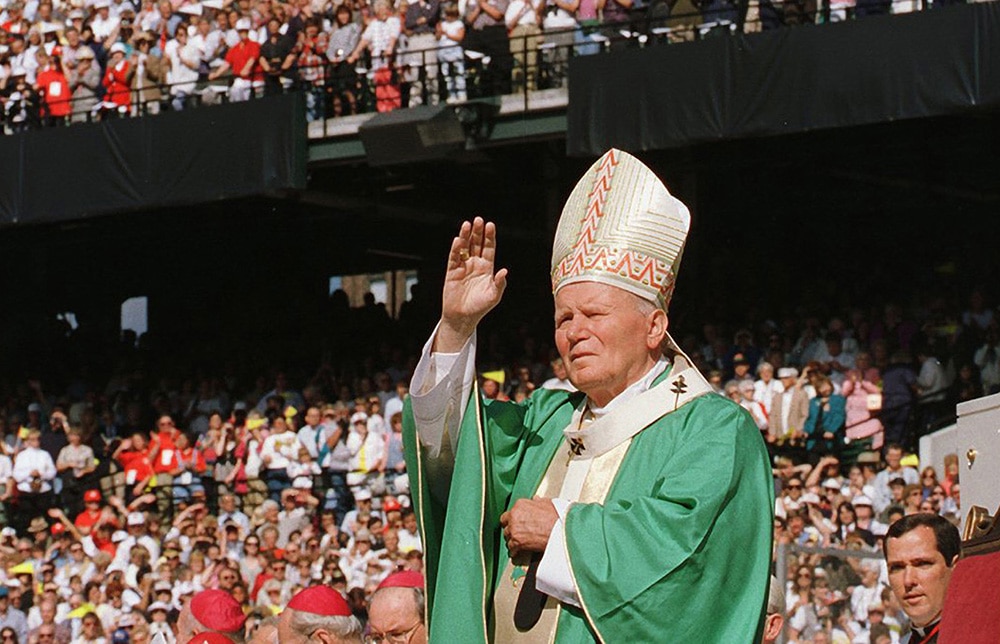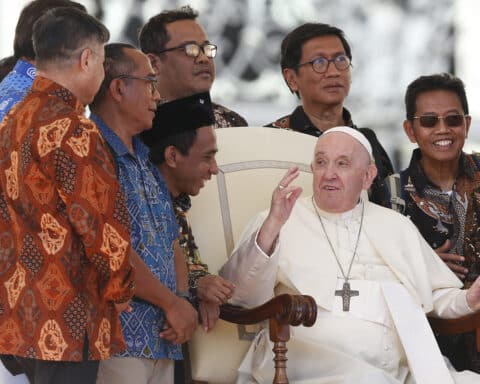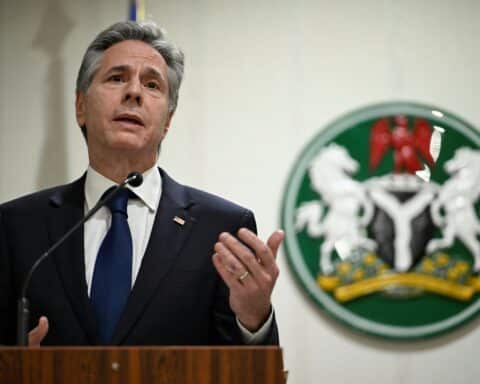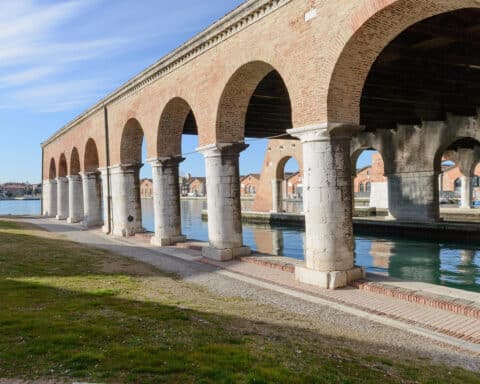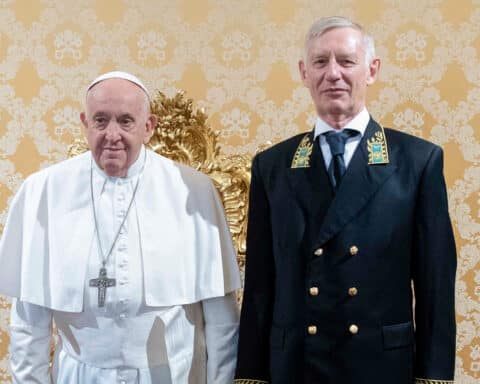After a summer of protests and demonstrations, of statues toppled and churches and monuments defaced, with all of it played out against the backdrop of a raging pandemic, Americans have plunged into an autumn of partisan bitterness in the runup to a deeply divisive election.
Given all that, is there any realistic way to bring Americans back together in mutual understanding and respect while restoring a sense of shared purpose? One currently popular answer is yes, there is such a way: equality. Yet equality itself needs to be defined and specified by ethical norms if it is to be the working principle of a just political community.
To begin to see what such a community might look like, go back a quarter-century to October 1995. Then, in two major talks during the sixth of his seven visits as pope to the United States, Pope St. John Paul II issued an urgent appeal on behalf of what he called “the moral truths that make freedom possible.”
The rights of all
The first of these addresses was delivered Oct. 5, 1995, to the United Nations general assembly in New York, which then was marking the 50th anniversary of the U.N. John Paul had also spoken to the world organization during his first U.S. visit in 1979, and the Holy See has been a supporter of the U.N. from its start, despite its backsliding in support of population control and other morally questionable practices.
On this occasion, the pope covered many topics in his long, complex text, including the rights of nations and the distinction between “unhealthy” nationalism and patriotism. At the heart of it, however, was a powerful defense of the dignity and rights of the human person, so often violated during the 20th century by various forms of totalitarianism.
“There are indeed universal human rights, rooted in the nature of the person, rights which reflect the objective and inviolable demands of a universal moral law …written on the human heart,” John Paul declared. And that being so, he added, the “basic question” for all nations and peoples today is how to use freedom in a way that best serves the interests of people considered in this light.
Then came this crucial passage: “Detached from the truth about the human person, freedom deteriorates into license in the lives of individuals, and in political life it becomes the caprice of the most powerful and the arrogance of power. Far from being a limitation upon freedom or a threat to it, reference to the truth about the human person — a truth universally knowable through the moral law written on the hearts of all — is in fact the guarantor of freedom’s future.”
In speaking of the moral law written on human hearts, John Paul was paraphrasing St. Paul’s letter to the Romans and referring to the natural law tradition of ethical and political discourse. Most likely, he did not speak specifically of “natural law” because the expression itself has become a red flag for secular intellectuals and policy makers who take natural law to be a sectarian doctrine that poses a threat to individual liberty. In fact, though, natural law, originating in the thinking of the fourth-century-B.C. Greek philosopher Aristotle, is concerned with the right use of personal liberty in the pursuit of personal fulfillment.
Founding principles
Three days after the U.N. address, the pope returned to this subject in his homily at Mass celebrated at Oriole Park at Camden Yards in Baltimore shortly before his departure for Rome. But now what he had to say was directed specifically to American Catholics.
Recalling that America has always aspired to be “a land of the free,” he said the challenge for America today is to “find freedom’s fulfillment in the truth.”
This, he made clear, is not some kind of mind game. On the contrary: “Democracy cannot be sustained without a shared commitment to certain moral truths about the human person and human community.” And those moral truths, he insisted, are present in “the biblical wisdom which played such a formative part in the very founding of your country” — and whose exclusion from political debate and judicial decision-making would mean that “America’s founding documents no longer have any defining content but are only the formal dressing of changing opinion.”
In Baltimore, John Paul spoke again of natural moral law and linked it to the American founding, inasmuch as the founders themselves were men formed in the natural-law tradition.
One obvious instance of this is the Declaration of Independence, which opens with a ringing affirmation of natural-law principle: “We hold these truths to be self-evident, that all men are created equal, that they are endowed by their Creator with certain unalienable rights. …”
A powerful challenge
Yet the ambivalence existing then and today, still a disruptive factor in national life, reflected in practices from abortion to capital punishment, was visible even at the founding: for the drafter of the Declaration’s hymn to equality, Thomas Jefferson, was a slave owner.
In his seminal 1960 book “We Hold These Truths,” Jesuit Father John Courtney Murray, a prominent proponent of natural law, concluded sadly that the natural-law tradition was dead in America. Two decades later, Notre Dame philosopher Alasdair MacIntyre, in his 1981 volume “After Virtue,” reached the same conclusion. As a result, he said, the basis for consensus among competing groups is gone, and “modern politics is civil war carried on by other means.”
Pope John Paul in 1995 said nothing one way or the other concerning this bleak analysis. But he did leave American Catholics with a challenge, suggesting all is not lost: “Guard the truth that is the condition of authentic freedom, the truth that allows freedom to be fulfilled in goodness. … Light your nation — light the world — with the power of that flame.”
That remains a large order 25 years later. And possibly even more necessary now than it was then.
Russell Shaw is a contributing editor for Our Sunday Visitor.

